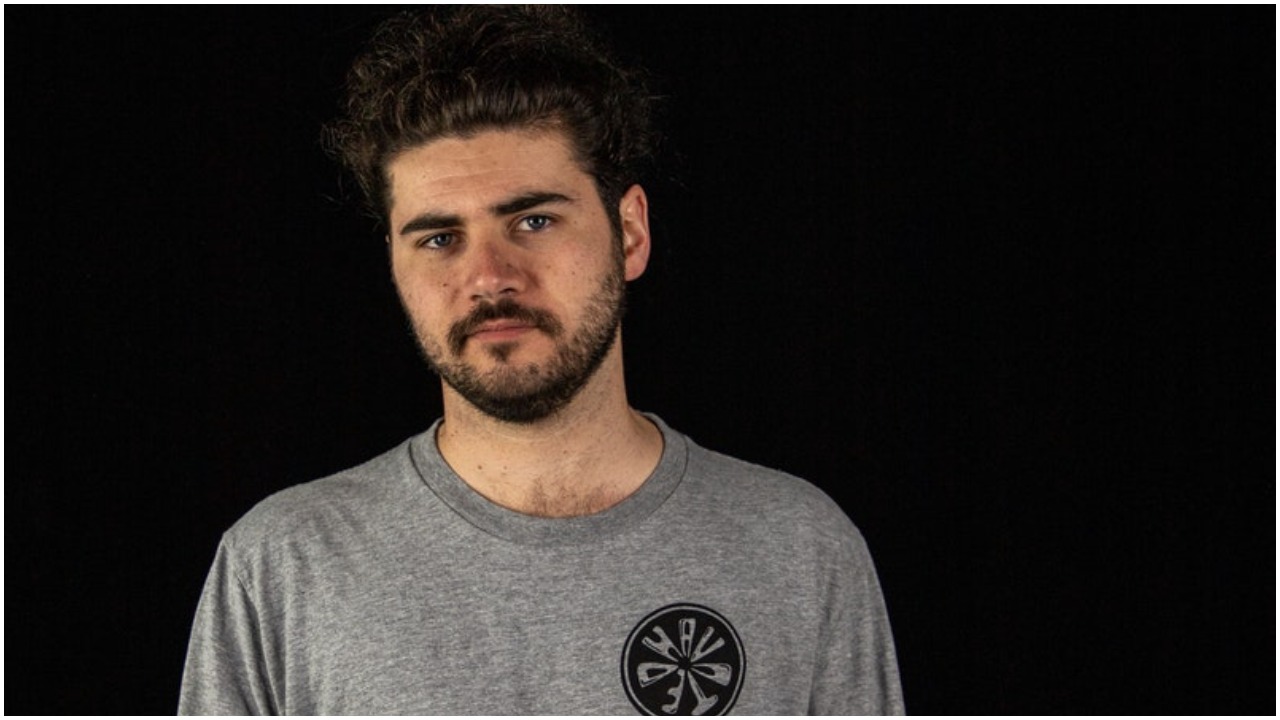TMN 30 Under 30: Three change-makers transforming the industry from within

Robbie Macpherson, Sasha Chifura and Shannen Egan are three youngsters in the music industry running their own show and executing their visions for how business should be done.
They’ve seen the industry’s challenges up close and personal, and have big and bold ideas for how to fix them.
Robbie Macpherson, Vandida

Robbie Macpherson wants to alter live music culture at a grassroots level by showcasing young, original artists in space they would not normally be found.
“Through playing in covers bands I learned about the stale and somewhat toxic culture (blatant ageism and sexism) around live bands in pubs/RSLs, and noticed that music had become more of an entertainment commodity and less of an art form,” he says.
He says he leads by example and shows bands how to promote their music and their live shows, which has earned him respect from venue owners and musicians alike.
But what are the biggest challenges facing the music industry, according to Robbie?
“Honestly I think the biggest challenge is a lack of understanding, education and industry-literacy within the wider community. In Australia at least, the main thing maintaining this cultural barrier between artists and punters is that very few people outside (or inside, for that matter) of the inner music-industry circle actually know how things work.
“Perhaps it’s our lack of coverage of the arts (triple j does a great job of providing a huge platform for the younger demographic to consume music but mainstream media’s representation of Australian music is very heavily focused on legacy acts), but even when we look at it on a micro level (my new event in the CBD for example) – people just don’t seem to ‘get’ music, or live music for that matter.
“As the business model has shifted away from record sales/streams and more towards monetising a live show/merchandise, live music is more important than ever and it’s frustrating that as a country we’ve let grassroots music become an afterthought, a hobby, a form of low-level entertainment. It’s much much more than that, and the industry on a large scale is sadly unsustainable, especially when something like a pandemic comes around and cuts the legs out from underneath the strongest part of the music economy.
“To overcome them I feel that music (even technical musical skills at a fundamental level) needs to have a more prominent presence in public school programs, and an insight into the live and recorded music industry needs to be taught in the same level of detail as that of other performing arts like acting/drama/theatre – it needs to become more ingrained into our society and less of a novelty/ a specialty subject.”
Sasha Chifura, Foreign Echo/ Valve Sounds

Sasha Chifura has been managing artists since he was just 16, and now has a partnership with Mushroom Group which sees his company, Foreign Echo, employ six people and work with 14 artists.
He’s a big believer in putting people first, he says, which is not only a good strategy for business growth, bit also for cultivating top talent.
“Happiness is a great advantage in life, when artists and employees are in a positive and fair environment and fewer resources are diverted into thinking about anxiety, productivity, and creative energy levels increase,” he says.
“A people-first culture is what the new generation of workers are demanding and deserve, and that is my driving ethos already reflected in the way our company has run to date and is also the core reason why I still work with mostly the same group of artists and people since the start of my career.”
But what are the biggest challenges facing the music industry, according to Sasha?
“Industry monopolies. When speaking about the mass and world market, the music industry remains very hard to break into for an ‘outsider’ and has a long history of deep inequity.
“Despite technological advances, the corporate concentration continues to further shift power to conglomerates that have been dominating and taking over all facets of the industry – radio, streaming, promotion, ticketing, artist management, and venue ownership, essentially any revenue-generating slice of the industry. For example, the domestic and international top 100 charts are typically 75 – 80% + dominated by conglomerates week by week.
“With an increasingly growing share of revenues earned in the industry, these few conglomerates are the most powerful buyers of music and talent, and they will exercise that power to prioritise a handful of self-serving purposes, meaning music will be less democratic and the broad middle class of artists, labels, venues, and other small businesses will be forced to rely on – and increasingly pay – monopolists for access to bands and fans.”
Shannen Egan, Turning Heads Agency

Shannen Egan launched Turning Heads Agency while representing pop-rock ACT band Teen Jesus and the Jean Teasers.
Since then, she says she’s worked tirelessly and fiercely, and is committed to professional development – both her own and that of those around her.
“I love and would love to continue to be a role model to future music makers and workers and will continue to share my knowledge and experience to develop and mentor other music professionals, especially young female / non-binary identifying music workers,” she says.
“Working within the Australian music industry is a huge part of my every day life. I get a lot of fulfilment from leading a release, project or event. I choose every day to strive towards my set goals and couldn’t imagine spending most of my time doing anything else that that. It’s an incredible feeling to work with music that you are passionate about and to be able to share that with the people around as part of your profession, whether that be in a recorded or live capacity.”
Within the next five years, she wants to be leading a full-time sustainable music business that caters to artist management, music servicing, music programming and professional development.
But what are the biggest challenges facing the music industry, according to Shannen?
“I acknowledge that 2020/21 has put huge challenges and barriers in front of the music industry, especially in the way that we deliver and consume live music and we have all felt the impact of that. With the loss of live music, the music industry has had to adapt and find new ways to work and develop whole new skillsets.
“Another key challenge I recognise, is that the power of young music professionals has sometimes gone undervalued. I believe that young people should be at the forefront of the music community wearing louder voices. I’d like to see more progressive young music industry workers at the front of advocacy campaigns and lobbying alongside music stakeholders and other peak bodies.
“As we know, there are no guidelines as to how to start off in within this music industry, only mentors and what we learn from our working experiences. There are limited opportunities for young people to engage in these bigger conversations. I can recognise that there is a whole generation on music industry that it sometimes left in the dark.
“In saying that, I am very grateful for having organisations such as The Australian Artist Management Association, The Seed Fund, The Push and many other platforms that engage professional development opportunities. I’d like to see more of it.”































